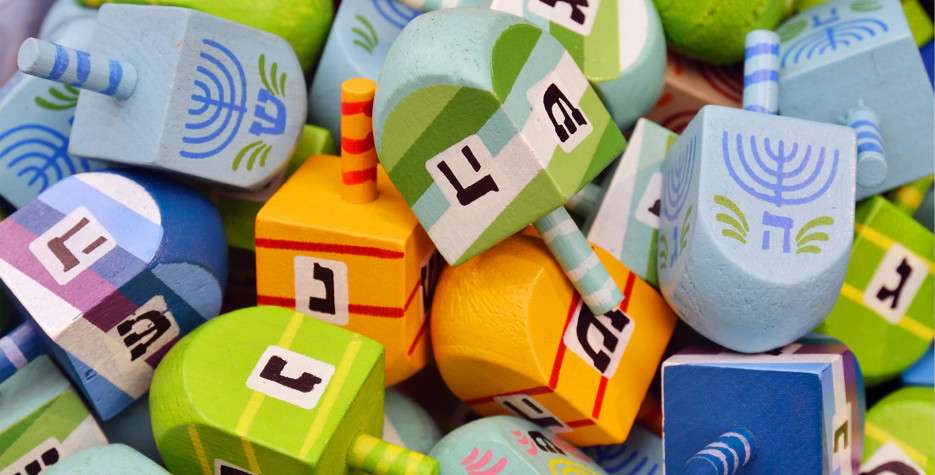When is Hanukkah?
Also known as Chanukah or the Festival of Lights, the festival of Hanukkah is a major Jewish festival. It is a holiday period in Israel, with schools closing, though it is not a national holiday.
Beginning on the 25th day of the month of Kislev (in November or December in the Western calendar), this holiday is observed for eight days in honour of the historic victory of the Maccabbees against religious oppression.
History of Hanukkah
In Hebrew, Hanukkah means 'dedication' or 'consecration'. During the 2nd century BCE, the Greek rulers of Antiochus had attempted to dissuade Jews away from Judaism and its traditions. The ain was to better integrate them into Greek culture. As part of these efforts, certain aspects of Jewish observance were outlawed, such as the study of Torah.
While the attempts had proved successful, a band of Jews rebelled and openly revolted against the changes to their way of life. This small band of rebels waged a campaign of guerrilla warfare against the Syrians. Antiochus sent thousands of soldiers to quell the rebellion, but the Maccabees managed to drive the Syrians from the land. In December, 164 BCE Jewish fighters entered Jerusalem. They found the Holy Temple in ruins and had been desecrated by the foreign troops.
Did you know?
Hanukkah is the only Jewish holiday not mentioned in the Hebrew Bible. The events occurred after it was written. The holiday is mentioned in the New Testament of the Christian Bible, which sees Jesus attend what is referred to as a "Feast of Dedication."
In addition to commemorating a military victory, Hanukkah remembers the 'miracle of the oil'. After the victory, when the Maccabees came to rededicate the Temple, they discovered they only had one flask of oil left to relight the Menorah. Miraculously, this small flask lasted for eight days, until a new supply of oil was obtained.
Nowadays, Hanukkah features the tradition of lighting a special Hanukkah menorah, which has nine candle arms. The center candle – also known as the Shamash or helper candle – is used to light the other eight for each night of Hanukkah. The candles are lit and placed in the menorah from right to left.
Commemorating the miracle of the burning lamp, it is traditional to eat foods fried in oil, such as potato latke pancakes or doughnuts. Other customs include spinning a top with Hebrew letters on the sides known as the dreidel (pictured above), and giving money to children. Chocolate coins or gelt (Yiddish for money) wrapped in gold and silver are exchanged at Hanukkah.
Did you know?
There are four letters on the side of a dreidel. They are 'nun, gimel, hei, shin'. Together they form an acronym for the message of Hanukkah: 'A great miracle happened there'.
Like other Jewish holidays, Hanukkah will begin at sundown on the previous day.
In modern-day Israel, Hanukkah is a national holiday in which students take part in plays, sing holiday songs and have parties. Schools are closed and Menorahs are displayed on top of prominent buildings, such as the Israeli Parliament, the Knesset.
Government offices, shops and transportation services operate as usual, according to the Israel Ministry of Foreign Affairs.
Hanukkah Around the World
Algeria: It is a tradition for many Algerian Jews to hang a menorah on their door, as well as a mezuzah, which is a small scroll usually stuck inside the front door, meant to bestow protection and blessings.
Canada: The first Hanukkah celebration in Canada dates back to 1760, which is when Jewish people were first allowed to immigrate to what was then a British colony.
Hungary: Established in 2009, the Quarter6Quarter7 Festival is a large celebration of Hanukkah each year in Budapest’s former Jewish Quarter. The festival routinely features flash mobs, candle lighting, live music, theatre performances, film screenings, culinary events and guided walking tours.
United Kingdom: Home to over 260,000 Jewish residents, the United Kingdom has a unique tradition of lighting a giant menorah in London’s Trafalgar Square for the holiday each year.
United States: The National Menorah in Washington D.C. will be lit by dignitaries.


